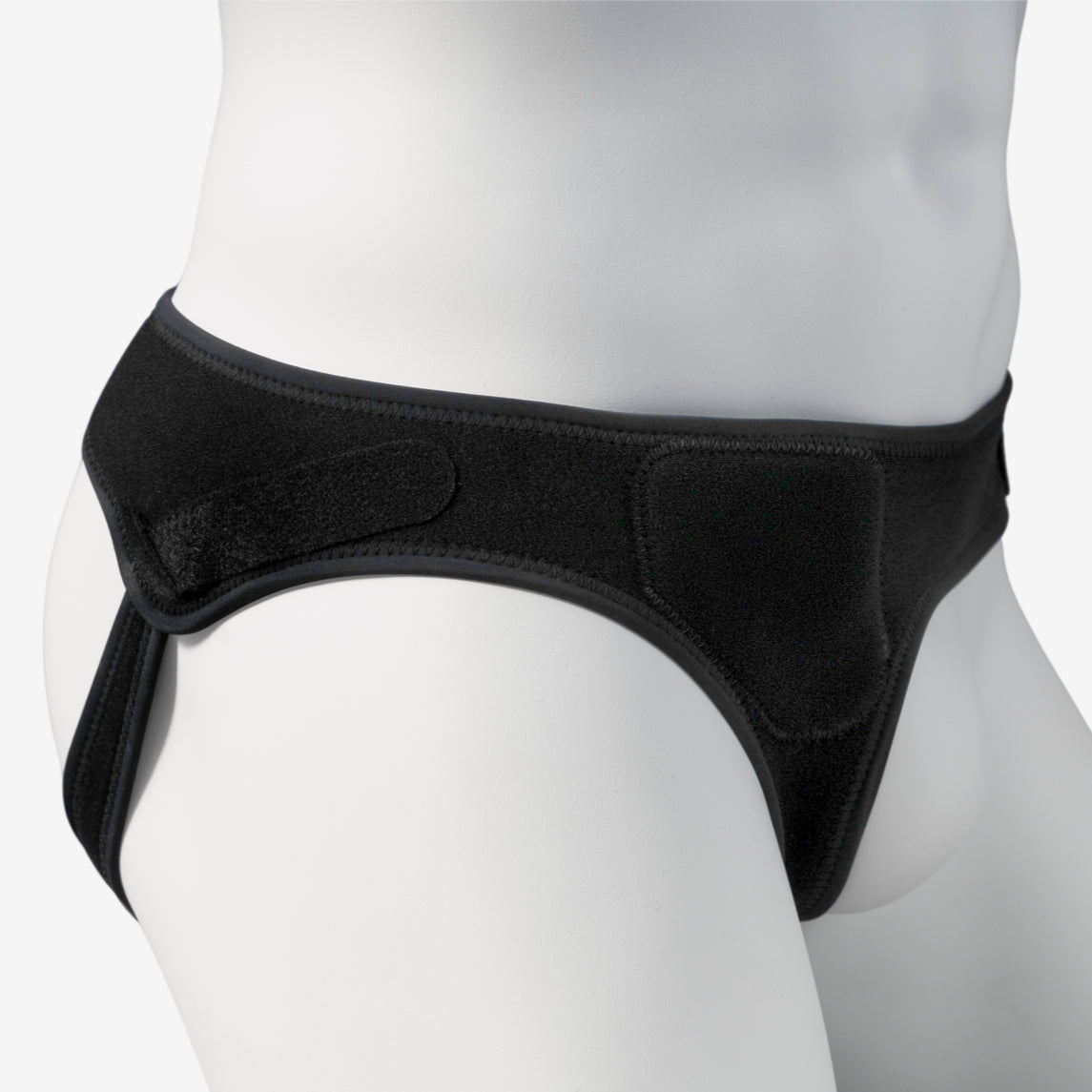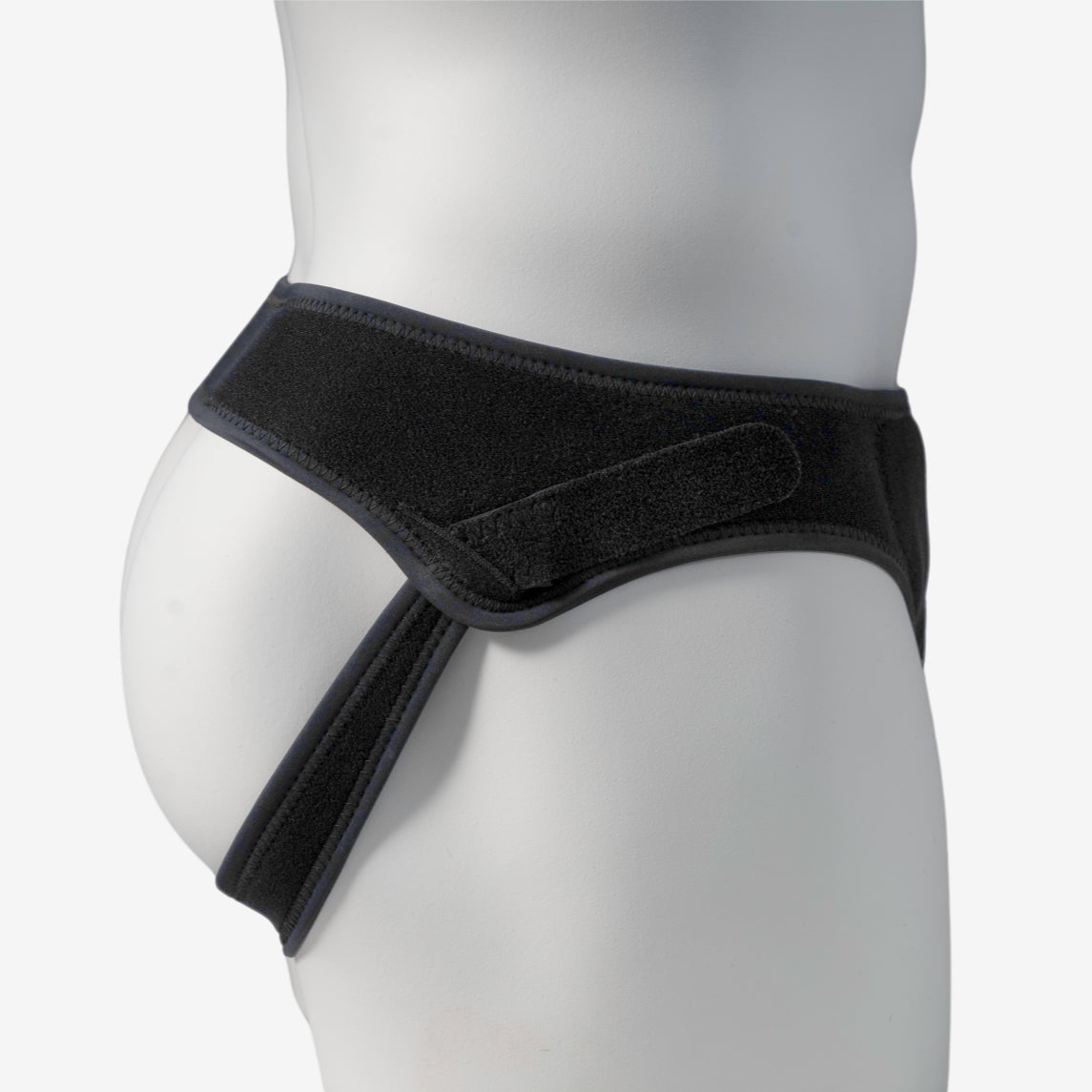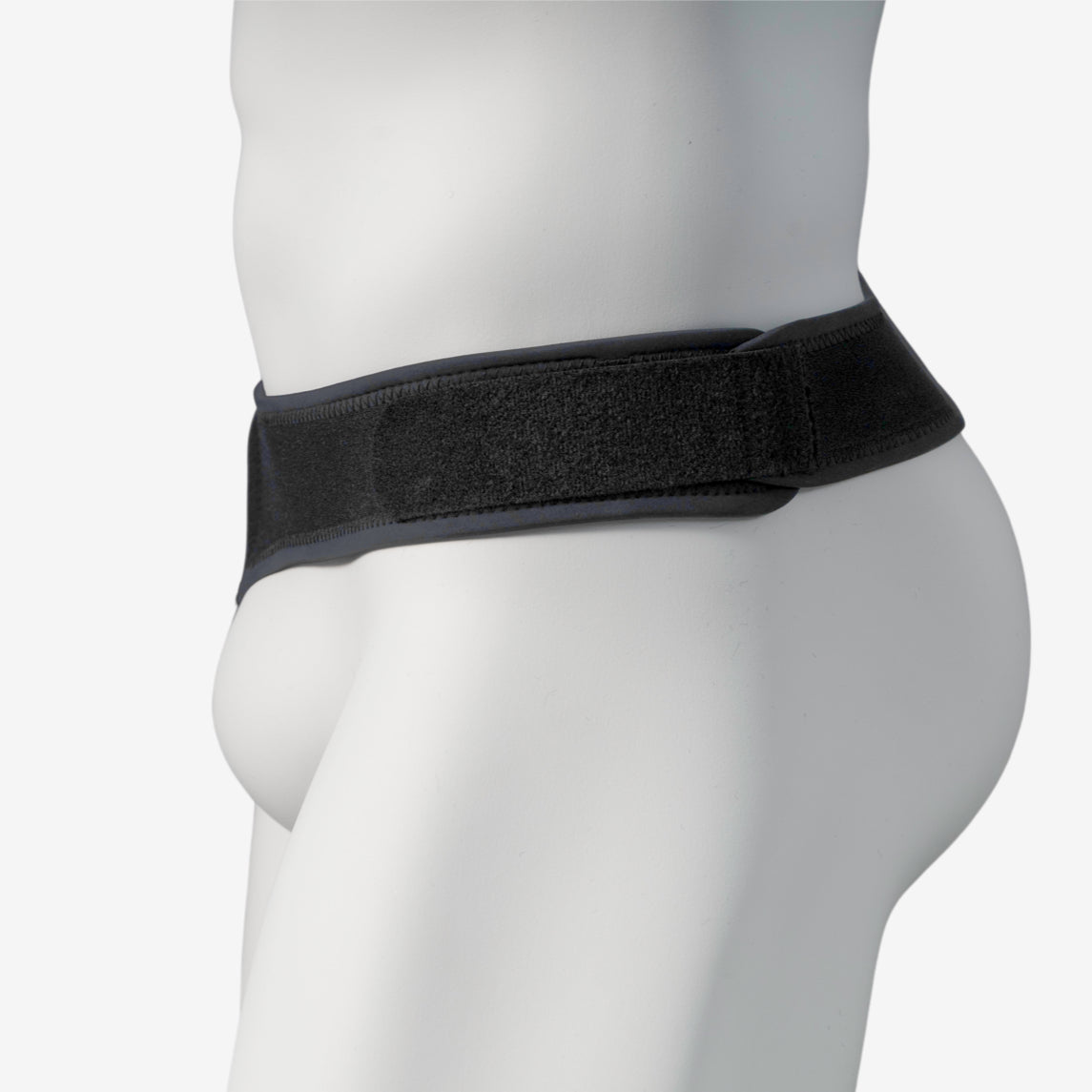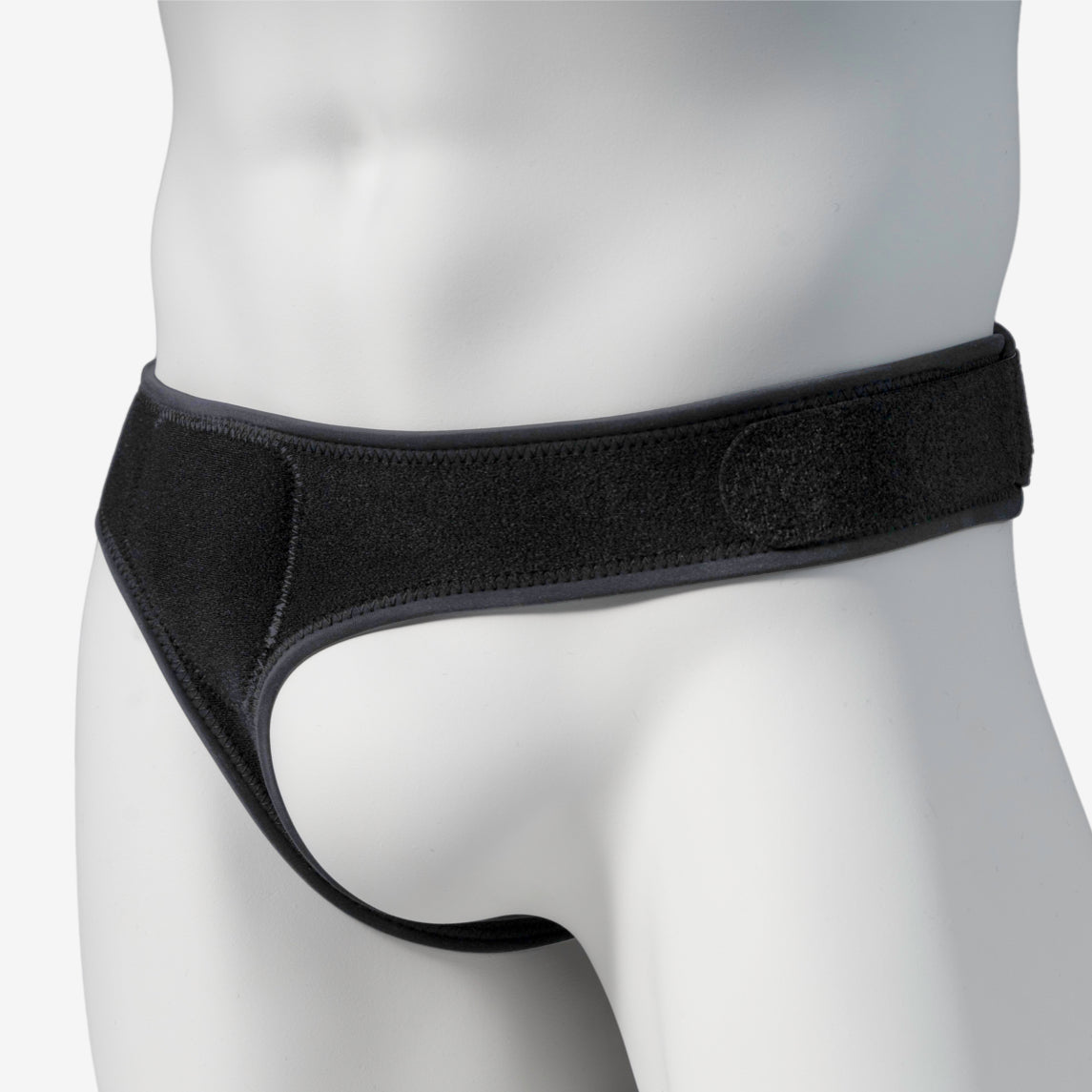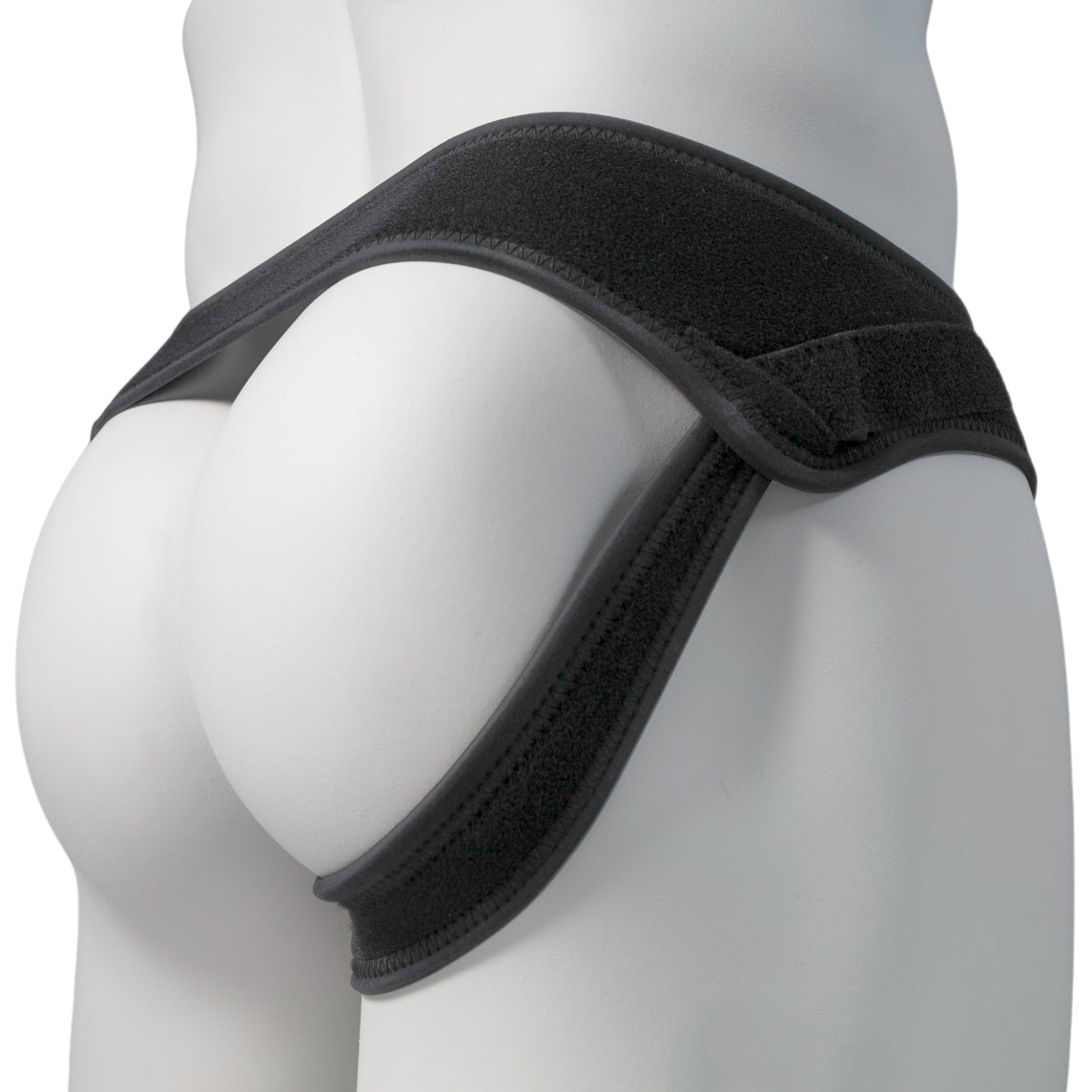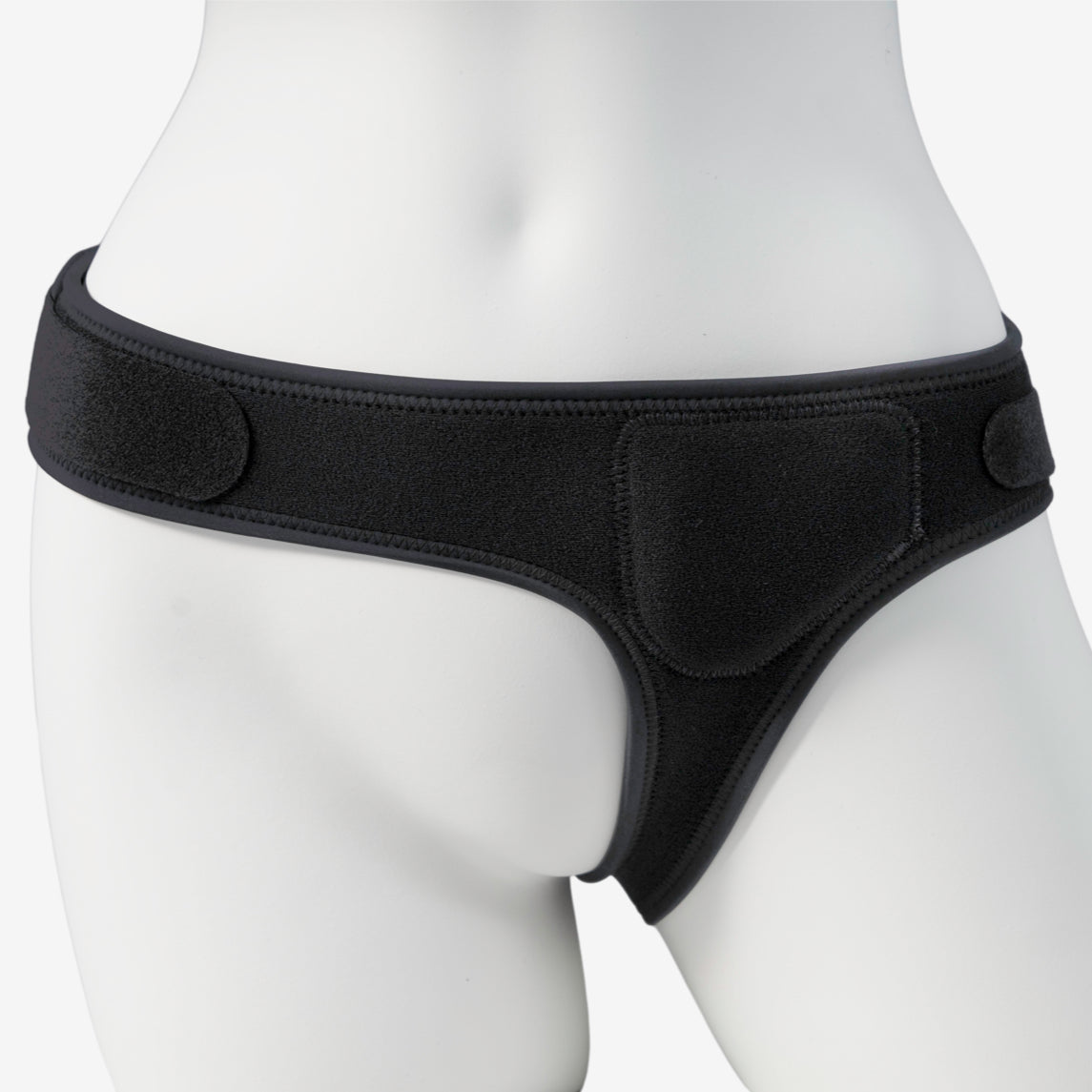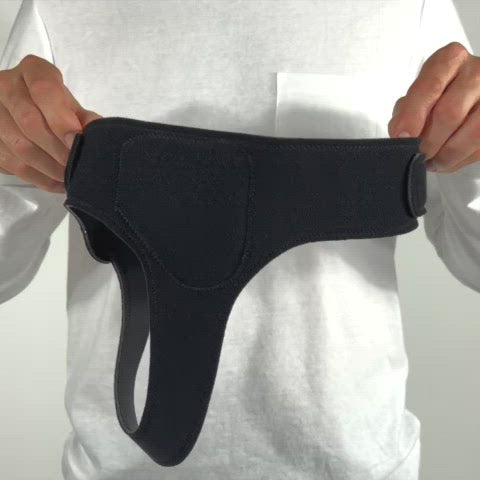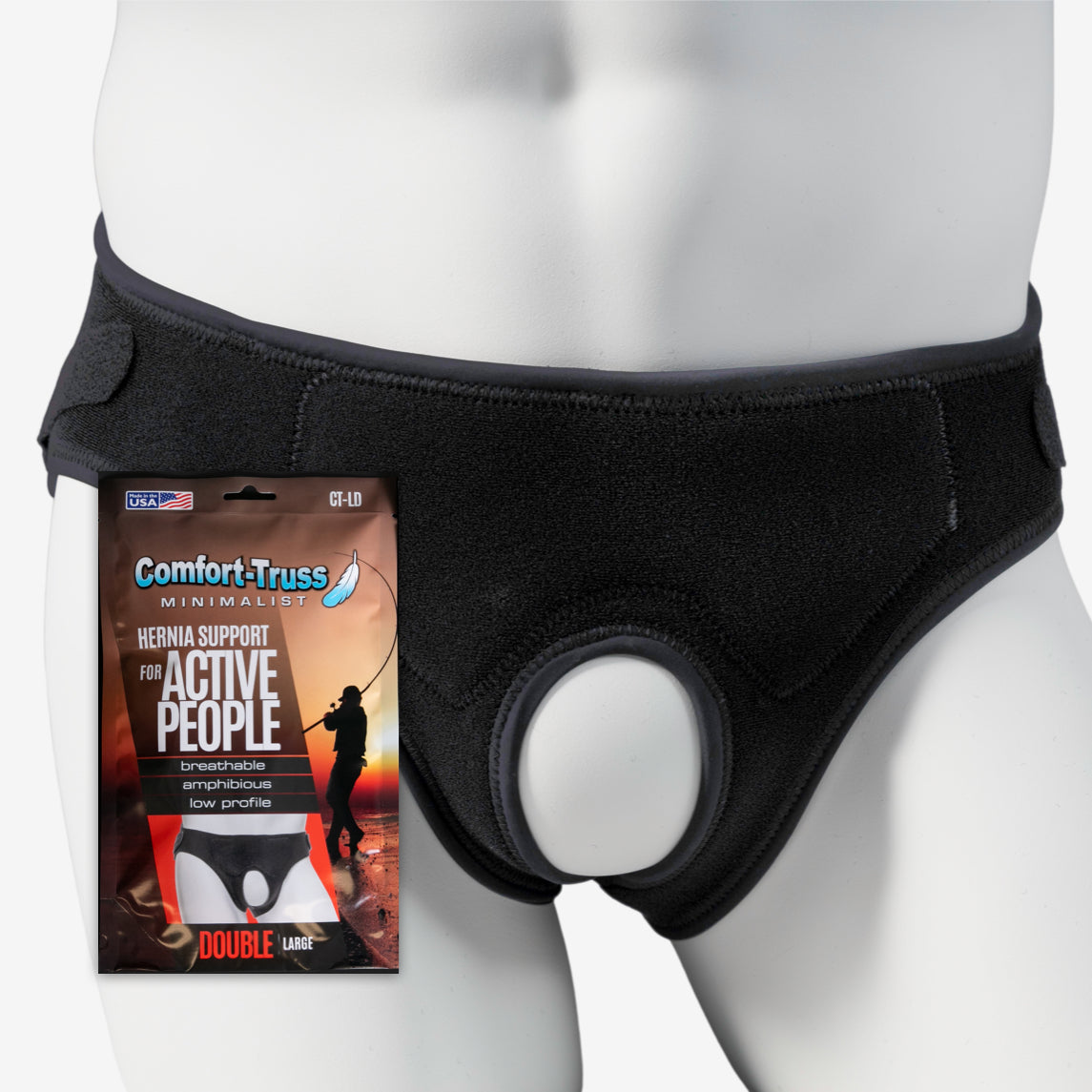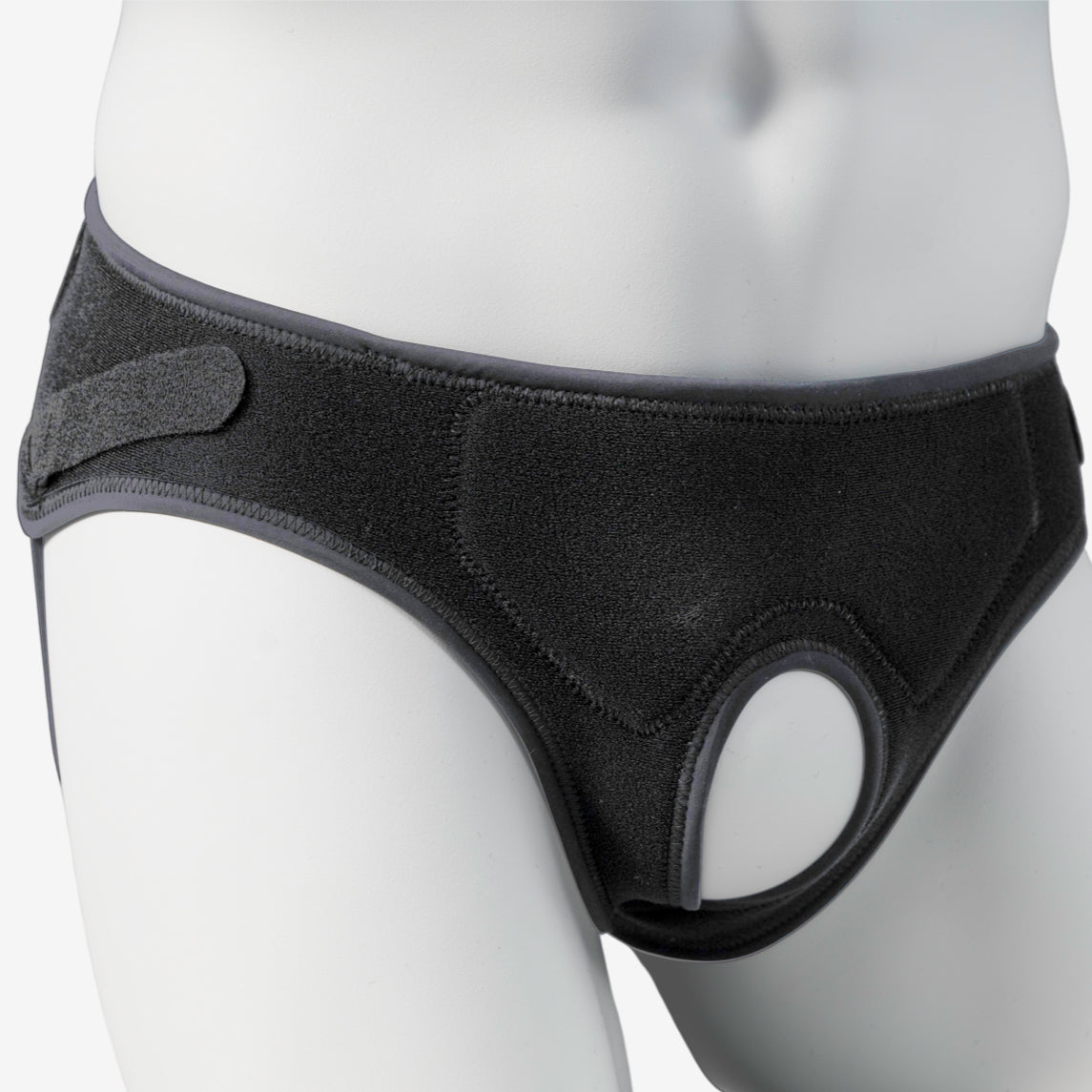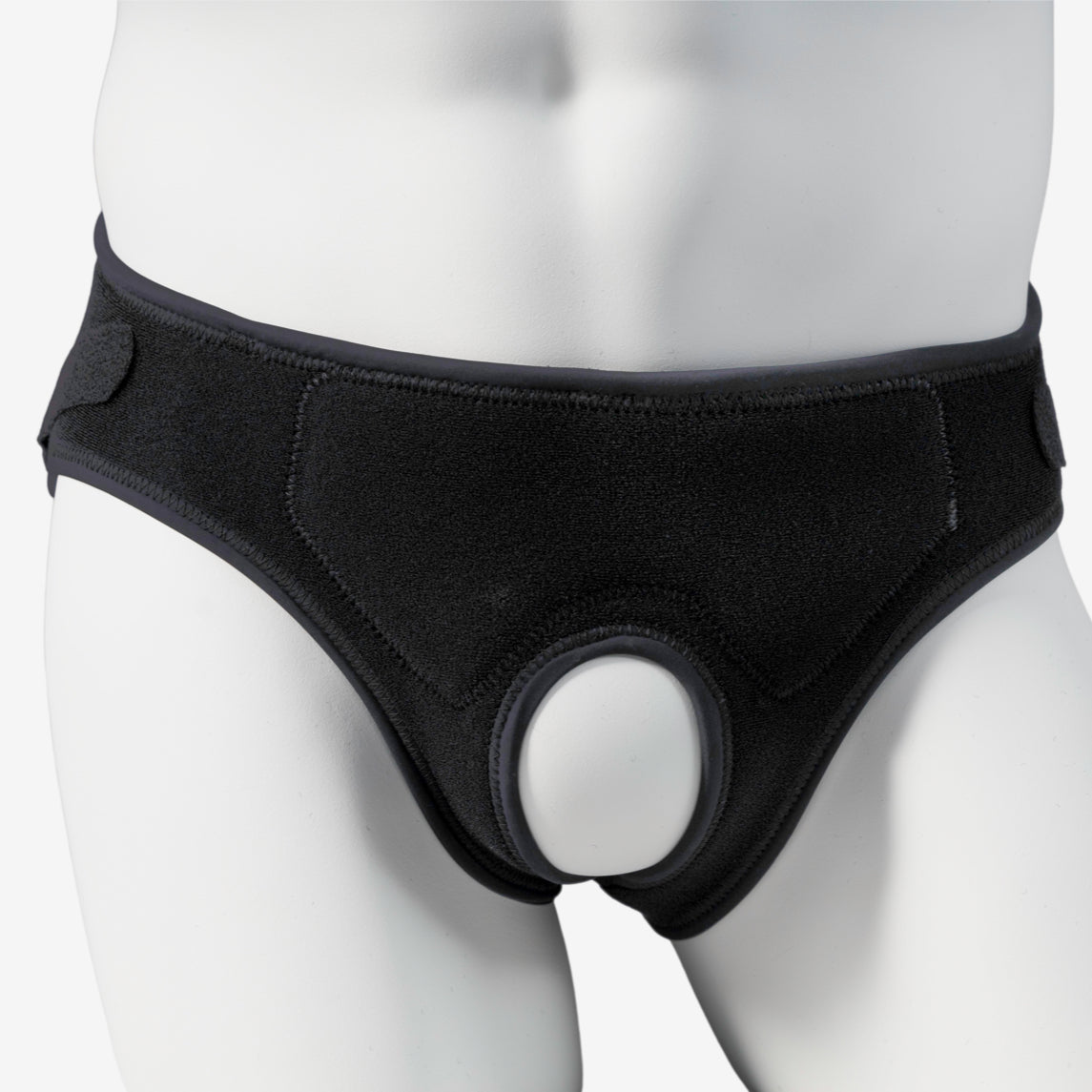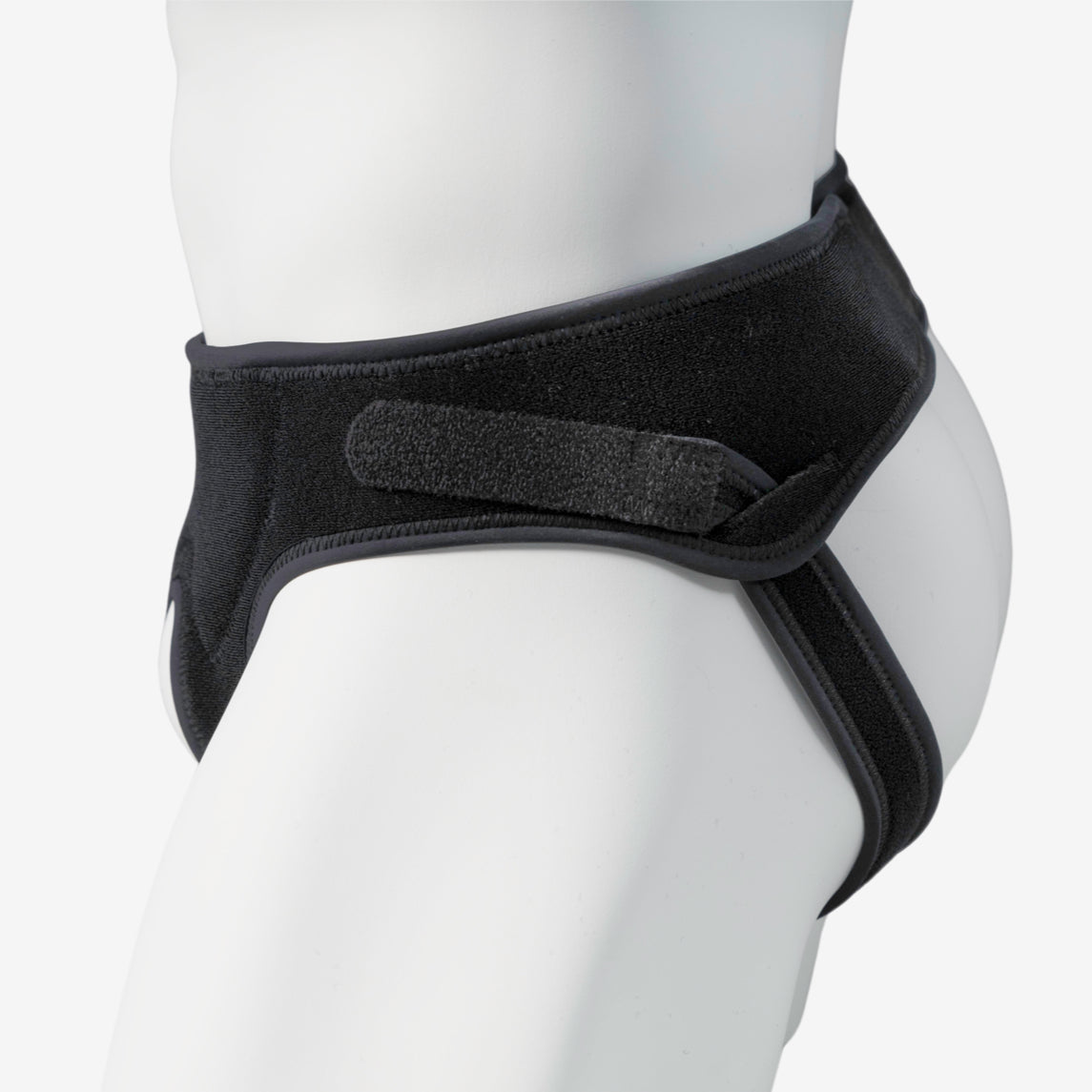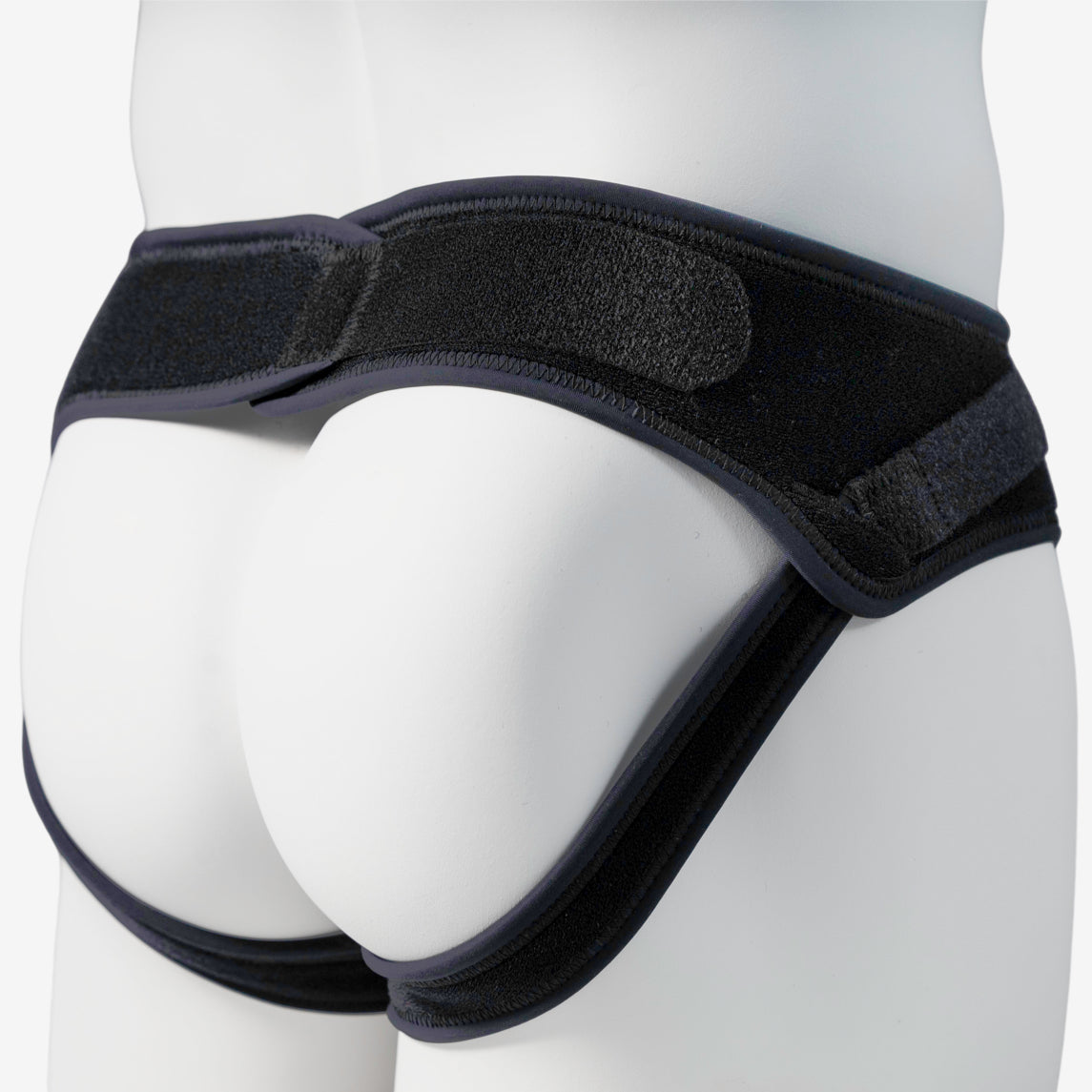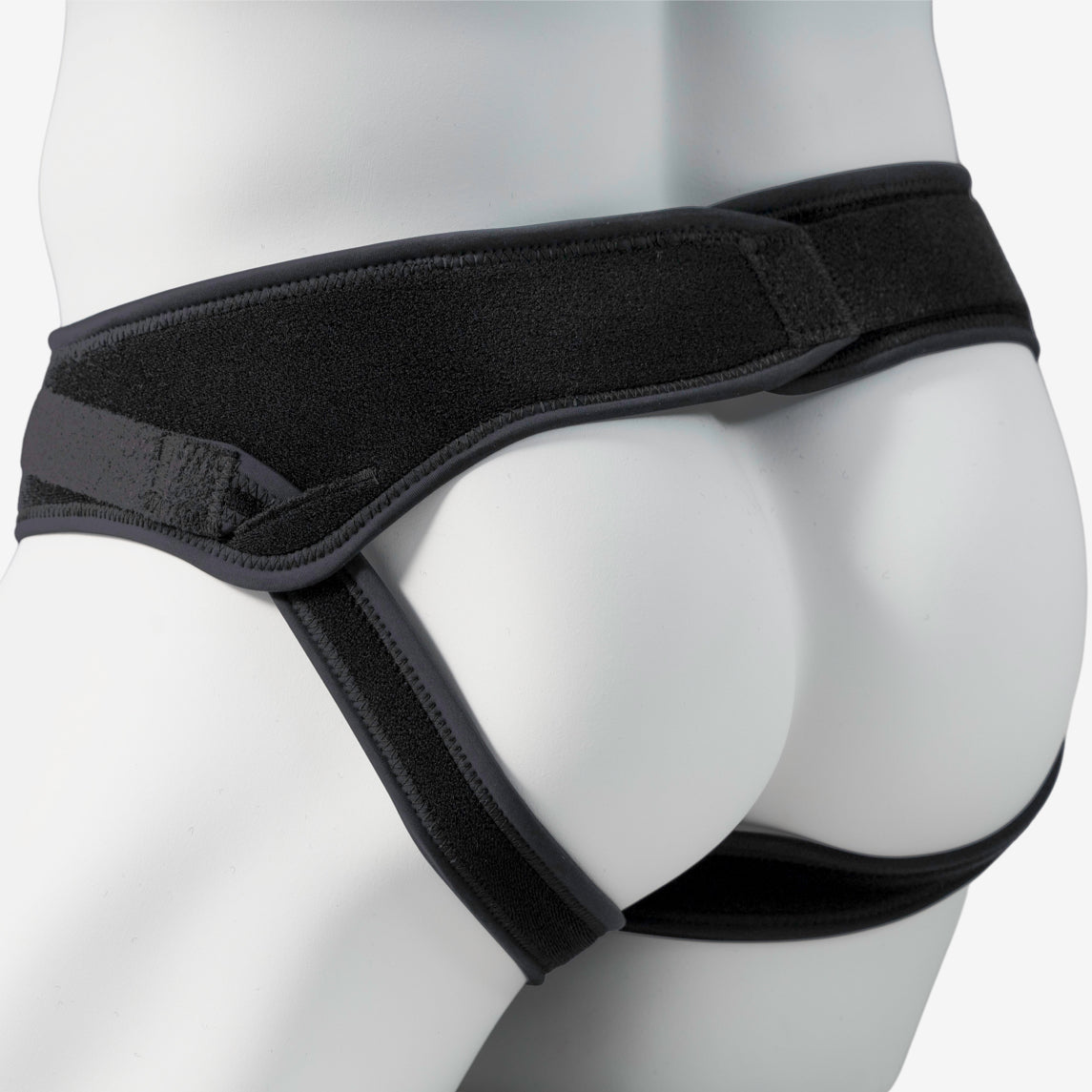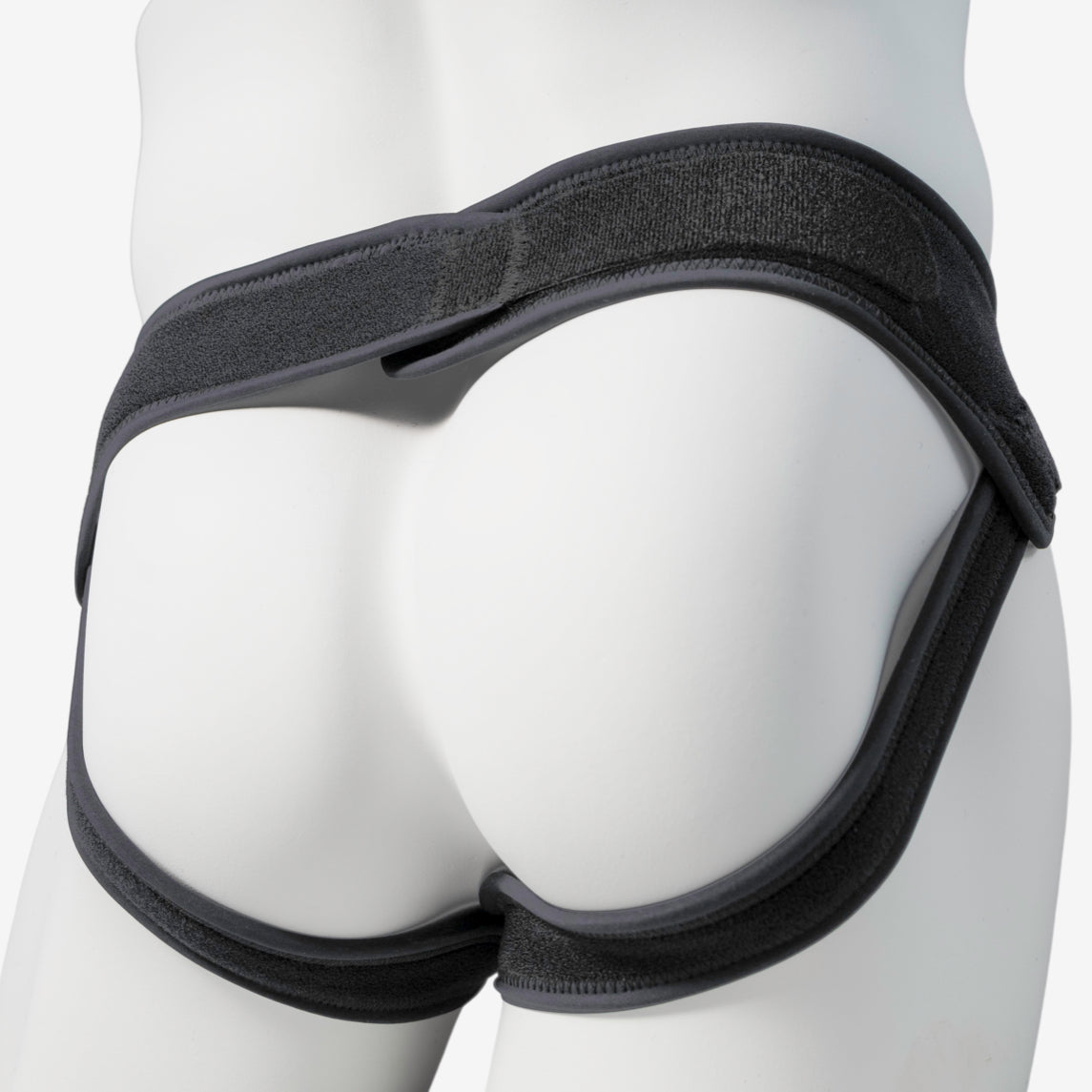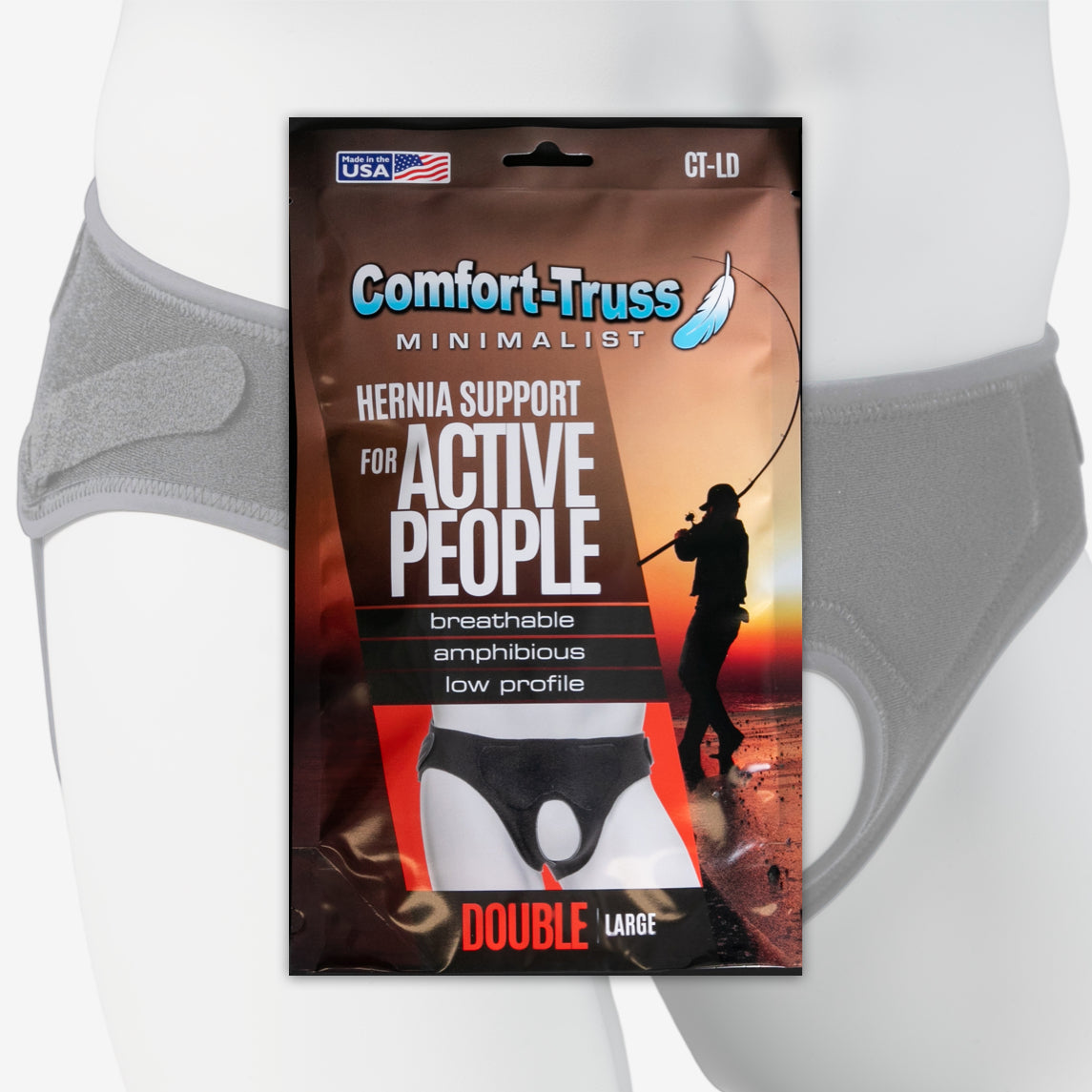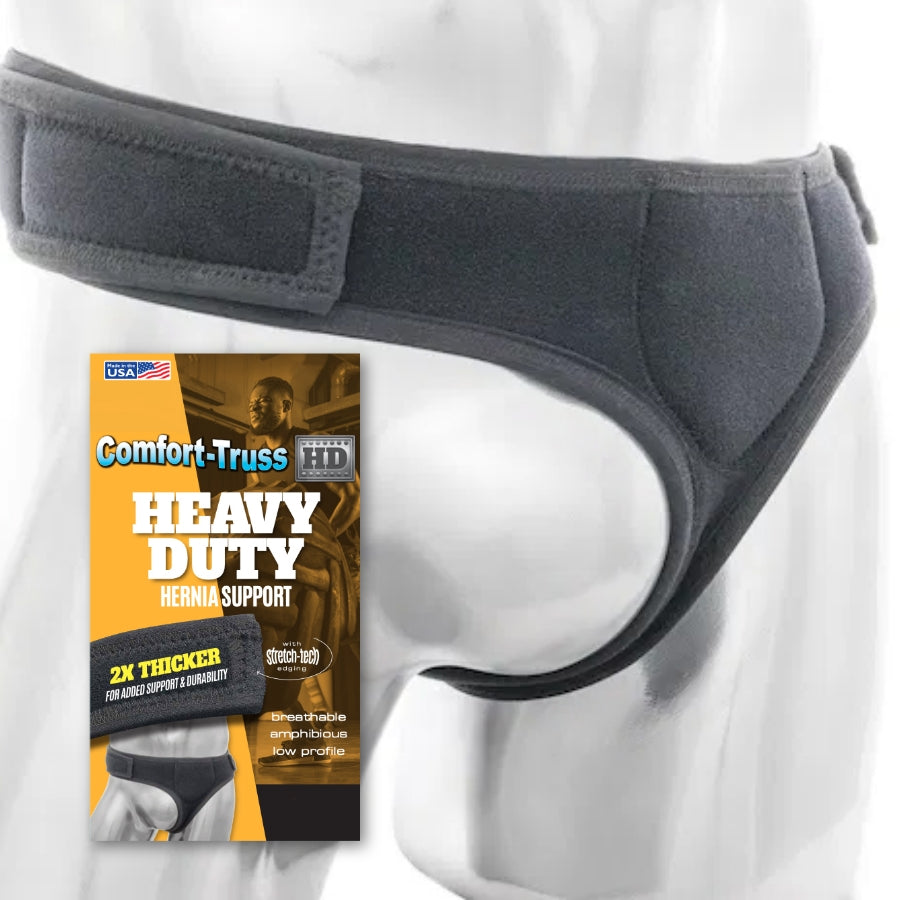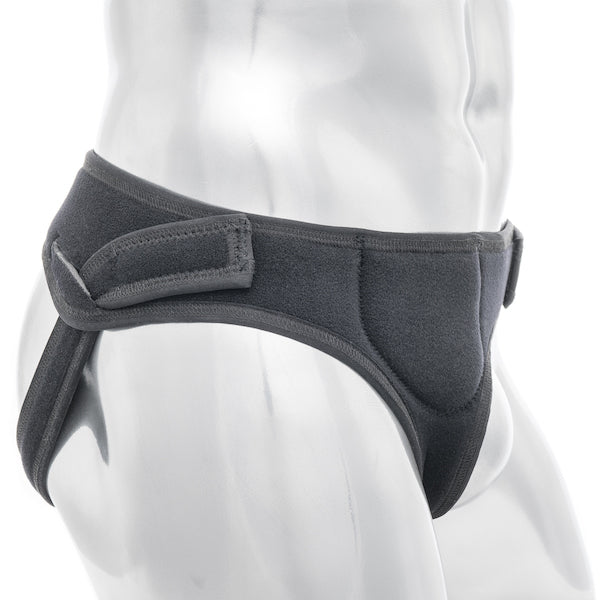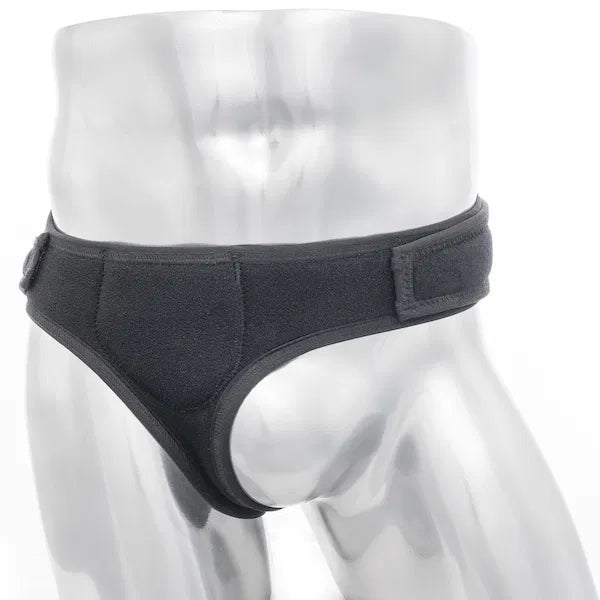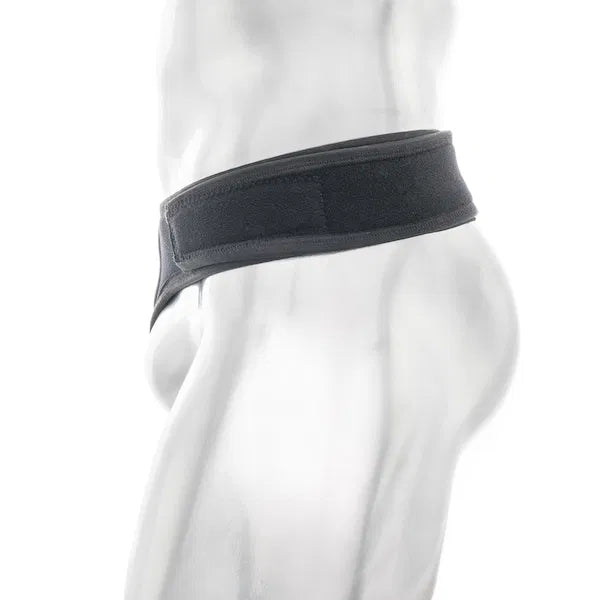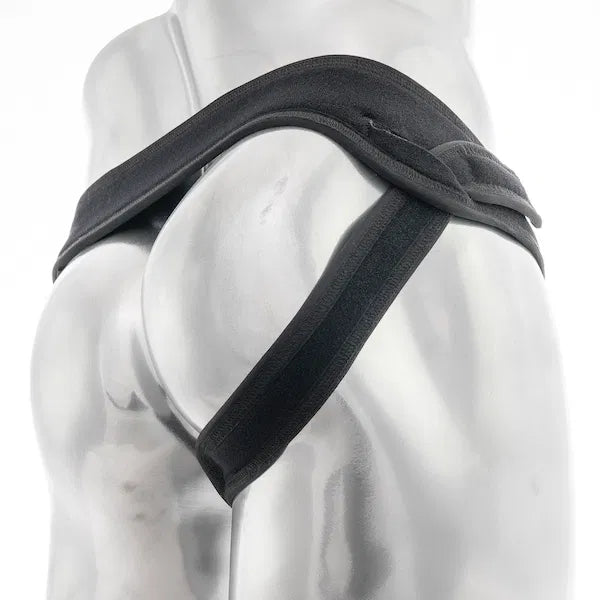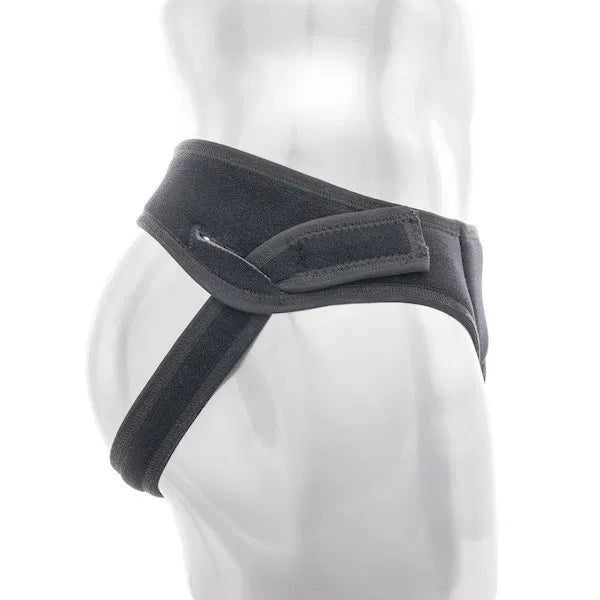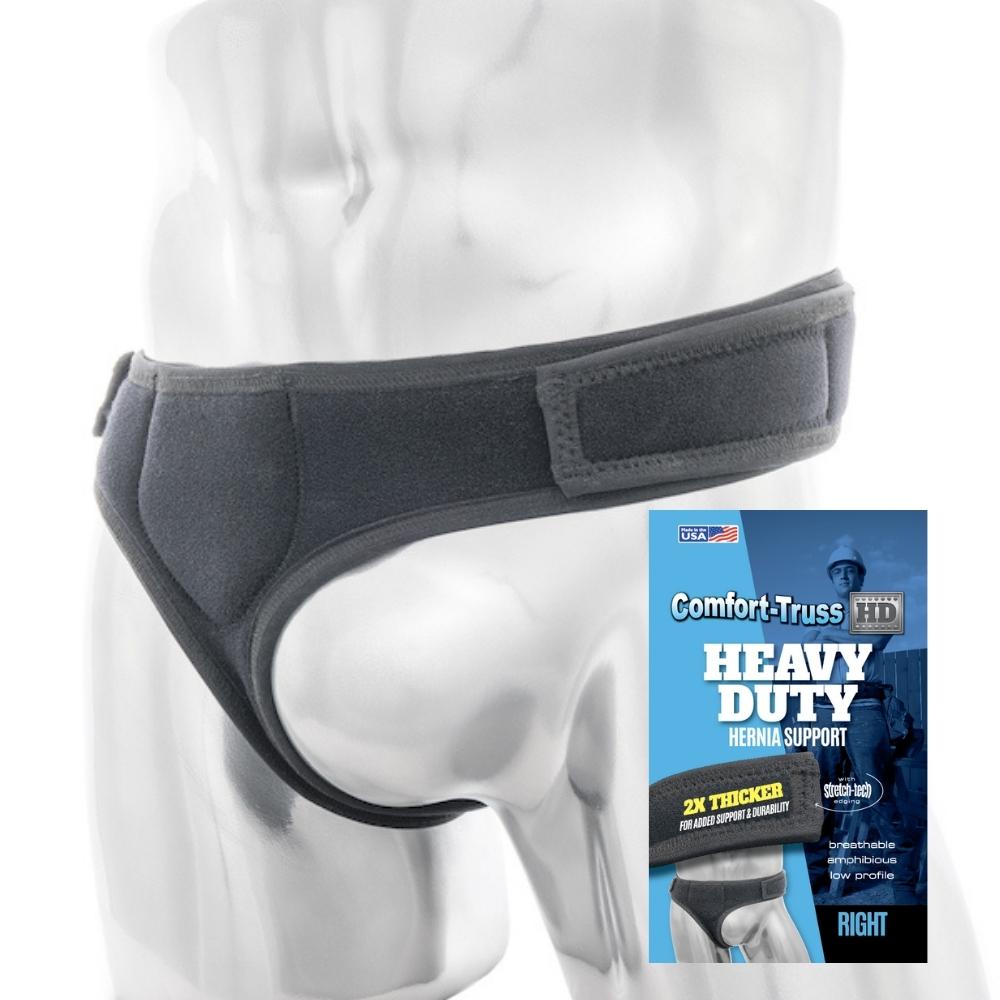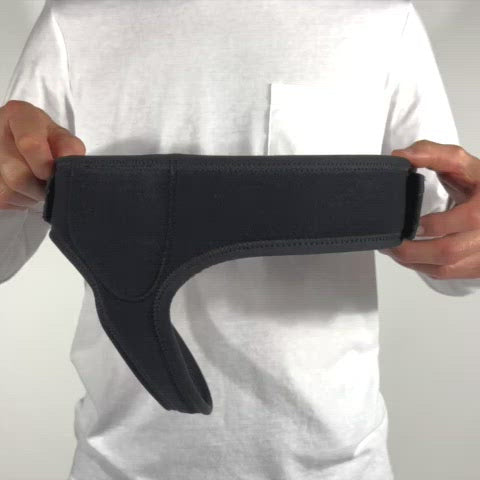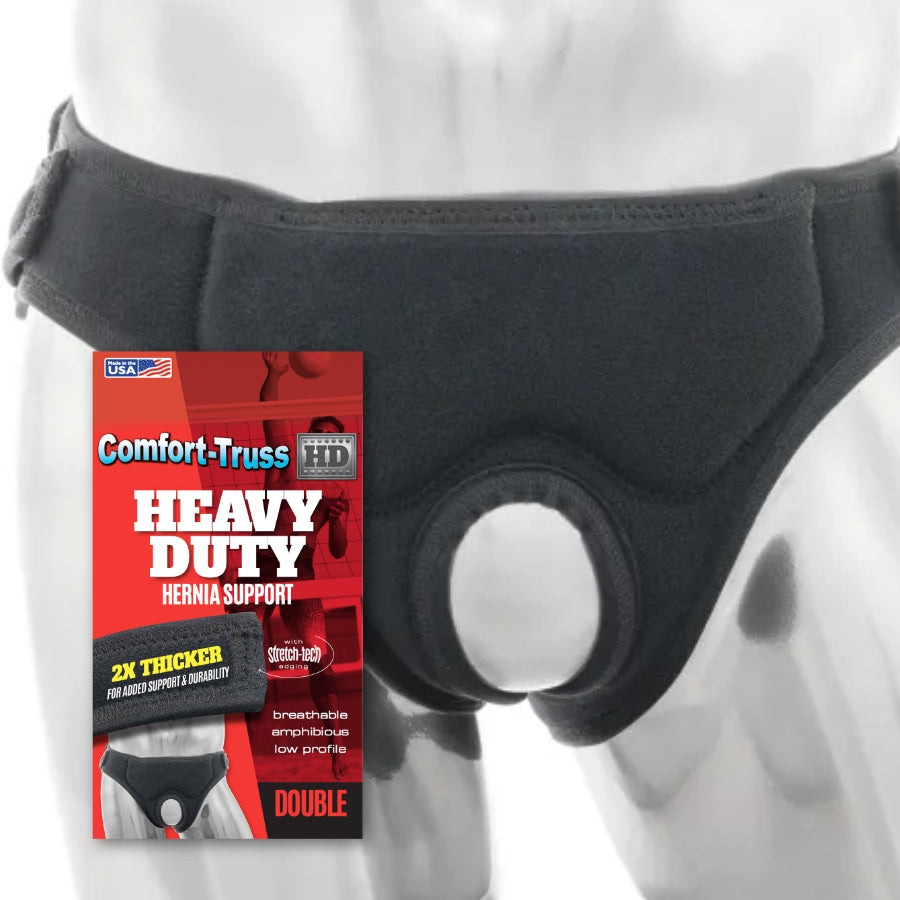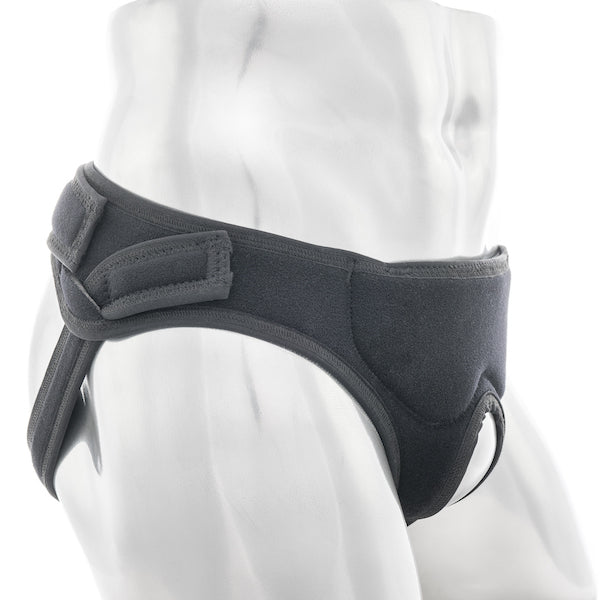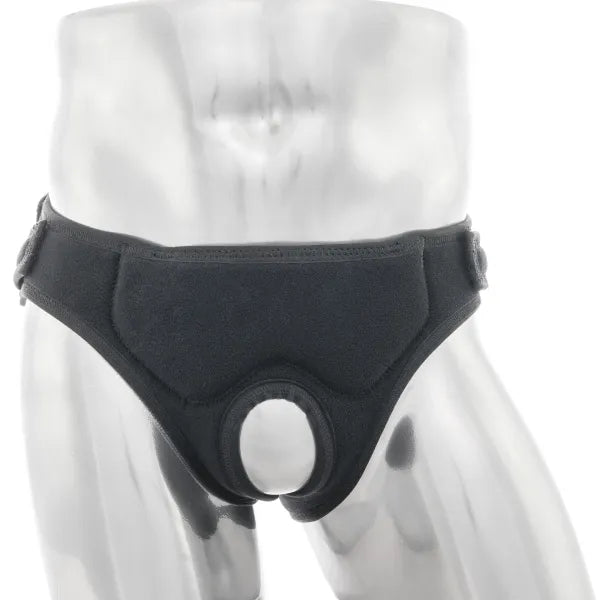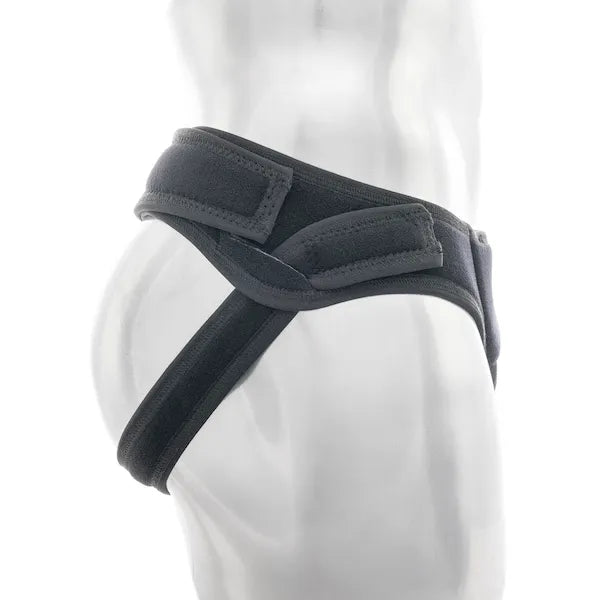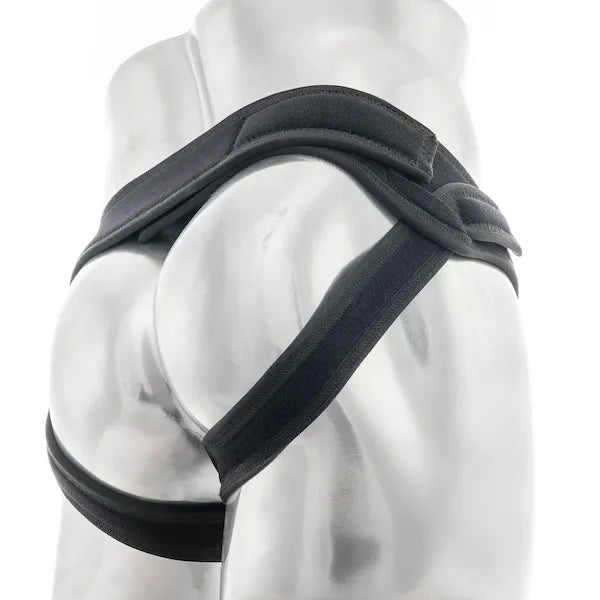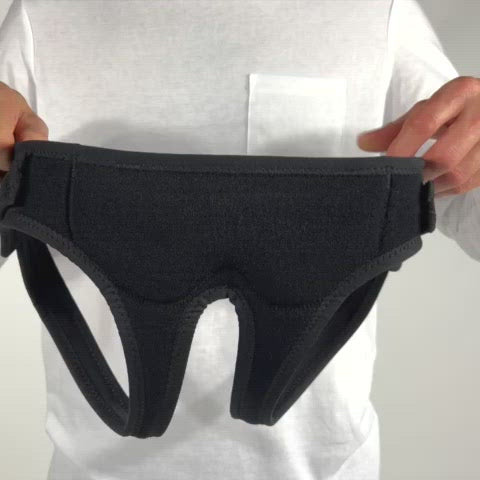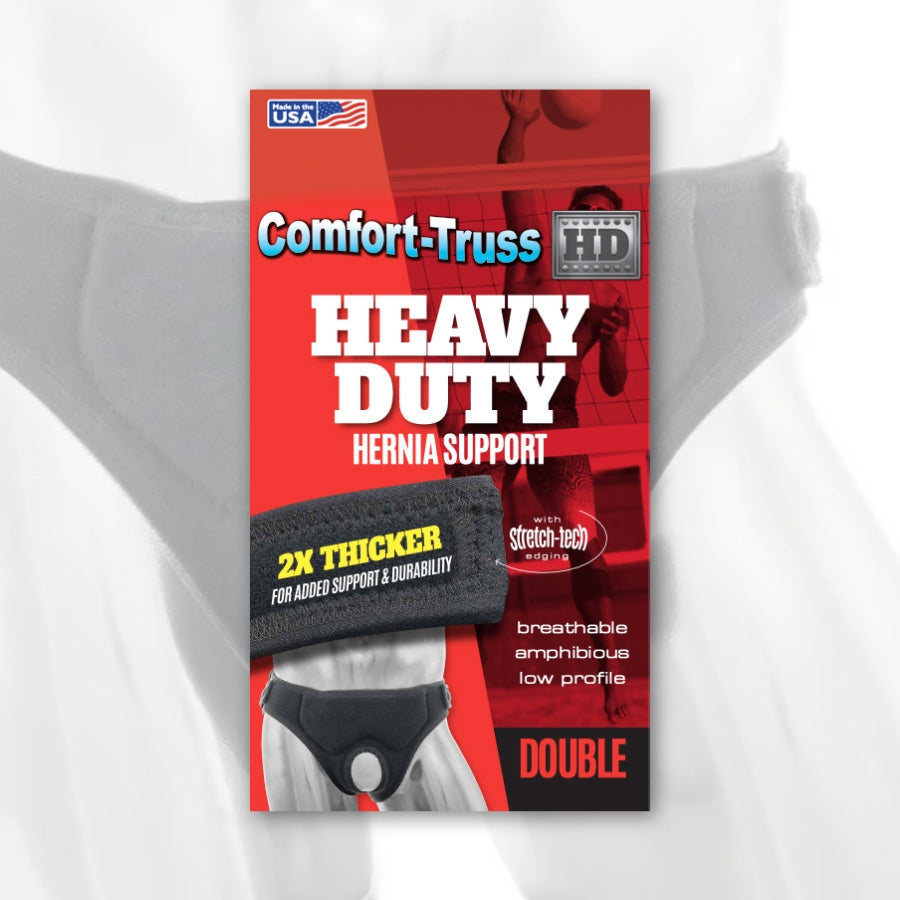How to Prevent a Hernia

By: Comfort Truss
Every year, hundreds of thousands of Americans are diagnosed with hernias. Hernia prevention is often a simple matter of changing certain lifestyle habits. If you've wondered how to prevent a hernia, we can help.
This comprehensive article will cover the different hernia types and what causes the most common varieties. We'll also provide some tips on how to avoid hernias. If you're suffering from hernia pain and looking for immediate relief, we'll explain how wearing a Comfort-Truss Hernia Belt can help alleviate your symptoms.
What Is a Hernia?
Hernias are holes that occur when a portion of an internal organ pushes through a wall of muscle. Following are the types of hernias, from most to least common:
- Indirect/Direct Inguinal Hernia
- Incisional Hernia
- Femoral Hernia
- Umbilical Hernia
- Hiatal Hernia
- Epigastric Hernia
- Spigelian Hernia
- Diaphragmatic Hernia
Inguinal Hernias
While some hernias cannot be prevented – such as those that occur due to prior abdominal surgery – there are things you can do to prevent inguinal hernias, which are the most common type. An inguinal hernia occurs in the groin or abdomen when a portion of the intestine pushes through a weakened place in the groin area called the inguinal canal. Men have a 27% chance of getting an inguinal hernia, while women's chances are around 3%. Not all hernias are preventable, but inguinal hernias often are. For this reason, we'll concentrate on inguinal hernia prevention.

7 Tips for Inguinal Hernia Prevention
Certain lifestyle changes can help prevent you from getting a hernia. Naturally, there is no guarantee that if you do all of these things, you'll never have a hernia, but it's best to minimize your risk. Also, in addition to inguinal hernia prevention, these lifestyle changes can positively impact your health in many other ways, so implementing them is a win in any case.
#1 Keep a Healthy Body Weight
Excess body fat puts constant pressure on your stomach. Over time, as you stand or move around, undue stress is placed on your abdominal wall, causing it to weaken. Losing weight will ease the strain on your abdomen and lessen your chances of getting a hernia. If you decide to go on a diet, consult with a medical professional to determine the best course of action to help you maintain a healthy weight.
#2 Do Hernia Prevention Exercises Regularly
Walking, cycling, lifting light weights and doing yoga or pilates are all considered safe exercises you can do to minimize hernia risk. Other hernia prevention exercises include anything that develops your core strength. Activities to avoid include squats, jumping exercises and movements that involve high exertion levels. The Comfort-Truss Proactive Approach To Hernia Intervention Program includes exercise videos designed for those with inguinal hernias.
#3 Avoid Constipation
High-fiber foods support regular bowel movements and can prevent you from becoming constipated. People who are regularly constipated tend to strain in an effort to eliminate, thus running the risk of getting a hernia. High-fiber foods include things like:
- Veggies
- Fruits
- Beans/Peas
- Whole Grains
- Seeds/Nuts
Along with a high-fiber diet, drinking plenty of water is key in avoiding constipation.
#4 Skip the Heavy Lifting
If you must pick up a heavy object, employ safe lifting techniques using your knees. Your legs, not your waist, should be doing the lifting. Athletes who lift weights learn this technique early on. This same method for bearing weight applies if you're shoveling snow. If you're not sure you can handle the weight, leave it. There's no reason to get a hernia or injure your back trying to move something that's too heavy.
#5 Get Help for a Persistent Cough
Coughing can cause a hernia to develop or aggravate one that already exists. Whether your cough results from allergies, asthma or another condition, getting your coughing under control is essential to hernia prevention.
#6 Give Up Smoking
You're probably well aware of the many health risks associated with smoking. Here is one more – your smoker's cough puts pressure on your midsection, which can result in a rupture in your abdominal muscles, causing a hernia.
#7 Get a Prostate Exam
As men age, they tend to develop an enlarged prostate. Straining during urination can put pressure on the abdomen and increase the chance of developing a hernia.
George Hirst, the founder of Comfort-Truss, was able to manage his hernia without surgery. Using a hernia belt he devised for himself, and by making certain lifestyle changes, he was able to reduce his hernia to the point where he is now asymptomatic. You can learn the techniques George used to deal with his hernia and see how they can help you. The Proactive Approach to Hernia Intervention has everything you need to head down the right path to managing your hernia.






